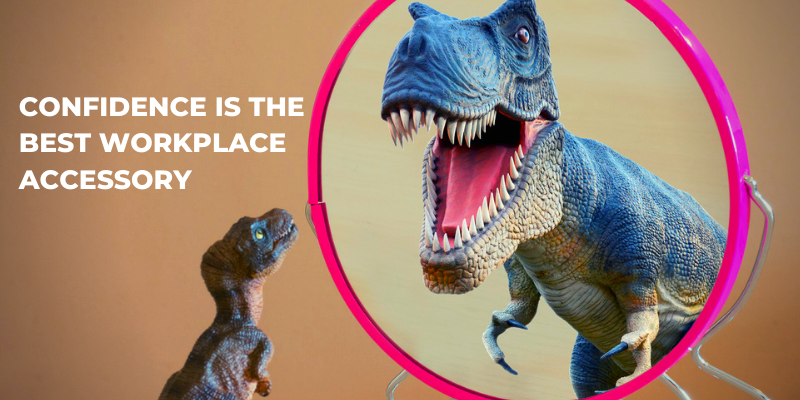Own Your Greatness: Get Over Imposter Syndrome
Have you ever heard yourself described by someone else and felt the urge to look behind you for someone else? Does writing your own bio to highlight your milestones and accomplishments cause you angst? If so, you might be suffering from some level of imposter syndrome.
Imposter syndrome is a common affliction that can affect everyone at every level of their career and impacts professionals in all industries across all disciplines. A lack of confidence can also affect your team and/or work product.
Imposter Syndrome is especially prevalent among certain groups such as:
- Professionals who recently took on a new role in their careers.
- Professionals who are “green” or at the beginning of their careers.
- Professionals who work remotely, with a feeling of disconnect from their workplace community.
- Female professionals who are working in predominantly male-oriented industries or returning to work after staying home with children for a period.
- First-time entrepreneurs who are worried about risk and hoping for success.
Imposter Syndrome is impactful in our careers. Even if we, personally, are not suffering from IS, it might impact the performance of our colleagues and employees, creating a drain on resources and dip in innovation. One recent study put out some very eye-opening statistics:
- 56% of the entrepreneurs indicated that they suffer from Imposter Syndrome regularly.
- 75% of professionals reported that they procrastinate often due to Imposter Syndrome.
- 65% of those surveyed say they fail to take actions that would meet their goals related to Imposter Syndrome.
How Do You Foster Confidence For Yourself and Your Team?
What exactly is Imposter Syndrome? The term is originally traced back to a pair of clinical psychologists named Pauline Clance and Suzanne Imes in 1978. Imposter syndrome is defined as feelings of inadequacy that persist despite evident or tangible potential for success. It might be summed up as chronic self-doubt. Even extremely high achieving and successful professionals can suffer with this issue. Some research has traced it back to childhood dynamics. For example, a child is labeled to be sensitive or an underachiever by teachers or parents may carry those perceptions into adulthood and into their careers.
What are the signs of Imposter Syndrome? Sometimes Imposter Syndrome is like a quiet voice inside our heads that we rarely talk about. It may be so ingrained in who we are that we don’t even recognize that it’s happening and possibly holding us back in our careers. If you have these types of thoughts and/or feelings, you might be suffering from Imposter Syndrome:
- Feelings that you don’t deserve success
- Trouble accepting compliments
- Lack of confidence in abilities
- Chalking successes up to luck
How can you foster confidence for you and your team? Imposter Syndrome can be a silent problem that isn’t aired out in the open due to embarrassment and shame. When you recognize the symptoms of Imposter Syndrome coming up in you or your employees, here are some tips to combat it:
Change-up the Work Environment. Isolation is a key contributor to Imposter Syndrome. That feeling of disconnection from the team can cause you to start getting inside your own head and questioning your self-worth. A change to your work environment can be the solution.
Even if you can’t be onsite with your team, you can create a space that offers a conducive work environment and a community to help you break the cycle of isolation. This can be done at a full-time capacity, part-time or even on an hourly basis at workspaces like Crown Center Executive Suites in Fort Lauderdale, where you’ll a place to focus and a network of like-minded professionals.
Reprogram Your Attitude Toward Failure. In savvy, innovative companies, failure is championed. Without embracing the risk of failure, the truly visionary ideas are never realized. By resetting your ideology toward failure, you might be able to, not only, overcome your Imposter Syndrome issues but also take your output to a new level of greatness (kind of like a huge win-win!)
Talk About IS. The conversation about Imposter Syndrome will help alleviate it. The fact is, as the statistics show, many of us are experiencing this kind of deep-seated self-doubt. Talking about it with others facing the same issues helps. Teaching employees how to recognize and what to do when we are overcome by it can alleviate the soul-crushing and productivity-crushing effects of Imposter Syndrome.
While we all face self-doubt from time to time, Imposter Syndrome goes a bit deeper than that and can truly derail our careers. The first step into overcoming IS is understanding what it is and ways to recognize if we are suffering from it. Once we identify it, we can take steps to prevent it from winning.
One way to beat Imposter Syndrome is to get more connected to our colleagues and build a community through creative flexible office space and conference room options like those offered at Crown Center Executive Suites.
Crown Center Executive Suites, in Fort Lauderdale, offers a complete range of workspace choices for full-time, part-time or hourly office and meeting space needs. Our community-oriented allows you to create the perfect office environment, however, it works for you including:
- Shared workspaces
- Meeting Rooms
- Virtual Offices
- Executive Suites
- And more!


